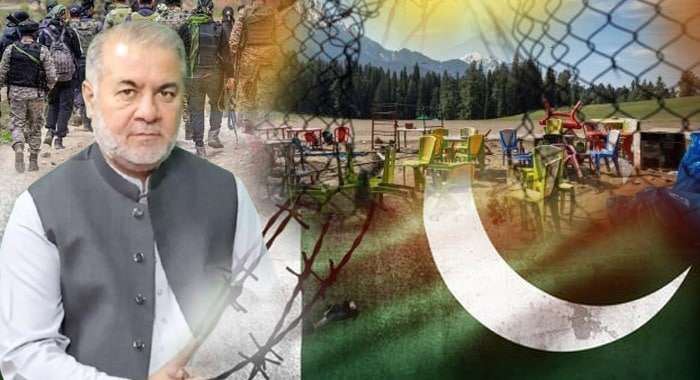In the aftermath of the Pahalgam attack, India rushed to point fingers at Pakistan—an act many see as hasty, poorly calculated, and scripted more like a Bollywood thriller than a serious geopolitical response. Despite no concrete evidence and with no arrests made, India quickly launched a blame campaign, cancelled visas, shut down the Wagah border, and even threatened to revoke the Indus Waters Treaty.
But where India responded with drama and accusations, Pakistan’s reaction was measured, responsible, and statesmanlike.
It’s telling that Pakistan, accused without proof, was the first to propose an independent investigation by neutral experts. If Islamabad were involved, why would it offer transparency and cooperation so readily? The mature tone from the Pakistani side stood in stark contrast to India’s theatrical narrative, which seemed pre-planned and politically motivated.
More significantly, Pahalgam is miles from the Pakistan border and heavily militarised—surrounded by Indian army check posts and surveillance. Movement in that area is tightly controlled, making infiltration from across the border highly unlikely without detection. These facts, coupled with India’s instant blame and pre-prepared punitive measures, suggest a calculated move rather than a spontaneous reaction.
Historically, India has had deep involvement in destabilising Pakistan internally—backed by evidence from Pakistan’s own intelligence agencies. But despite numerous terrorist attacks on its soil, including high-casualty incidents like the recent Jaffar Express train hijacking, Pakistan hasn’t responded with knee-jerk accusations or international smear campaigns.
Even when Pakistan shot down an Indian aircraft in 2019 and captured pilot Abhinandan Varthaman, the Pakistani military treated him with dignity, offered medical care, and released him swiftly—a gesture that won praise internationally. The message was clear: Pakistan does not seek escalation.
The real danger lies in miscalculations. Both countries are nuclear powers, and even the most aggressive rhetoric must eventually collide with the reality of mutually assured destruction. That’s why Pakistan’s diplomatic outreach, including to China, and calls for transparent investigations, are gaining traction globally—while India’s narrative is losing credibility.
Meanwhile, Pakistan continues to fight its own war on terror, with deadly cross-border infiltration from Afghanistan still a serious concern. But encouragingly, cooperation between Islamabad and Kabul appears to be improving. Recent intelligence-sharing led to the neutralisation of dozens of militants, with their bodies and weapons publicly displayed—a first in recent memory.
Pakistan had specifically demanded that Afghanistan prevent suicide bombers from being trained on its soil. The Taliban reportedly committed to that demand. And now, early signs show those promises being honoured.
Extremist groups fighting the Pakistani state are often well-funded, heavily armed, and ideologically driven. It’s no surprise if they seek support from foreign powers. While there’s no conclusive evidence of Indian funding, suspicions remain strong—and given the scale and sophistication of some attacks, such foreign involvement seems plausible.
Ultimately, while India chooses film scripts, Pakistan is leaning on facts, diplomacy, and restraint. And in the court of global public opinion, that difference is starting to matter.





